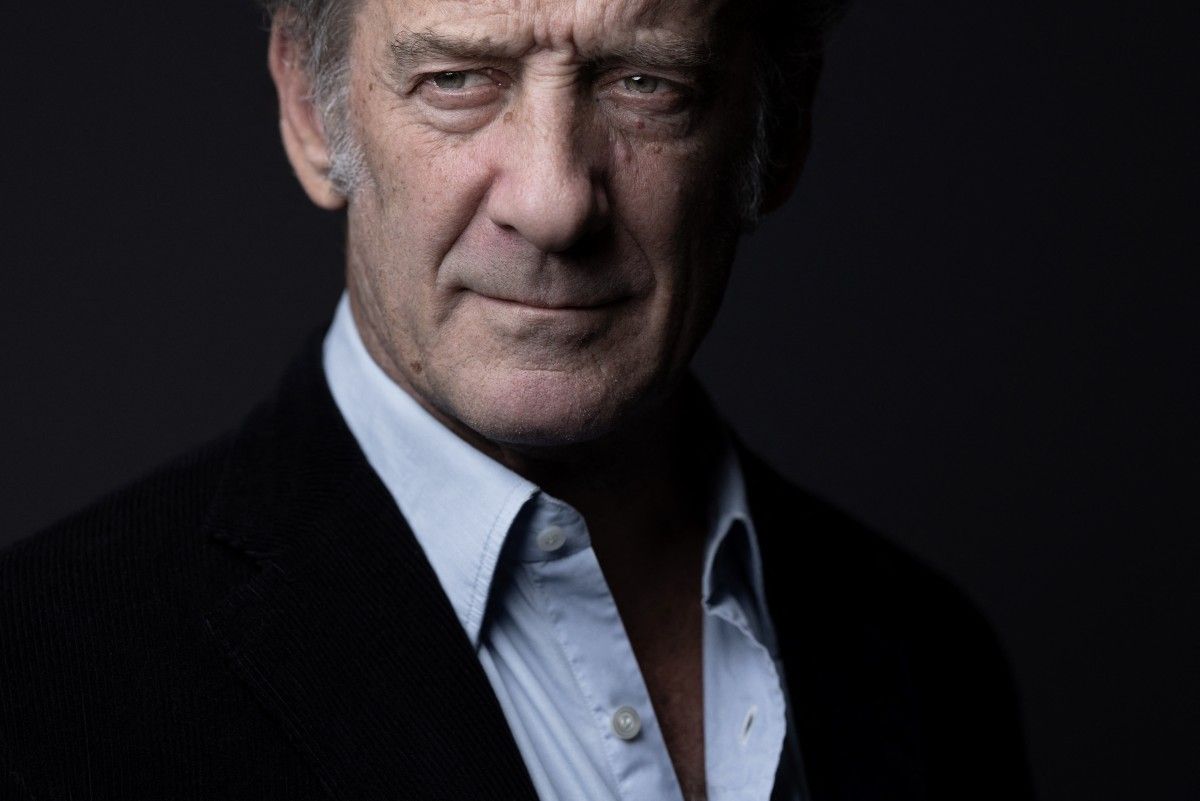
With forty years of career and international recognition, Vincent Lindon embodies a passionate actor navigating between impactful roles and strong positions, reflecting sharp societal themes.
An engaged actor and a recognized pillar of French cinema, Vincent Lindon continues to leave his mark on the history of the silver screen with performances that are both intense and diverse. From the beginning of his career, he has established himself as a key figure, seamlessly combining sensitivity and depth in his roles. Winner of the Best Actor award at Cannes for The Measure of a Man and in Venice for Titane, Lindon stands out for his ability to embody complex characters, often grappling with moral dilemmas and harsh social realities.
“It’s the films that rejuvenate me, not the awards,” he says. With his Best Actor prize in Venice, Lindon, now forty years into his career, is experiencing a new creative vitality.
The actor is celebrated for his ability to transcend roles, bringing a singular intensity to each character. His meticulous approach is built on a sharp eye for detail, an undeniable talent, and tireless dedication, which makes his performances deeply human and authentic. His collaborations with acclaimed directors such as Stéphane Brizé and Julia Ducournau demonstrate his commitment to bold and socially engaged cinema. Through a wide range of films, Lindon showcases a rare versatility. These qualities have earned him awards at the world’s most prestigious film festivals. International audiences remain captivated by Lindon’s depth of interpretation and unwavering dedication to his craft. With Playing with Fire, he delivers a moving performance rooted in contemporary issues, reaffirming his status as a cinematic icon.
After the groundbreaking Titane (directed by Julia Ducournau, Palme d’Or 2021) and a role he adored playing — a customs officer in the series Of Money and Blood — the actor returns this Wednesday with Playing with Fire. In this film, he portrays a railway worker faced with the radicalization of one of his sons (Benjamin Voisin), who is drawn to violent far-right ideologies, while his other son (Stefan Crépon) excels academically.
Nine years after winning the Best Actor prize at Cannes for Stéphane Brizé’s The Measure of a Man, Vincent Lindon joins the elite group of actors who have triumphed at the two most renowned festivals in the world, alongside the likes of Javier Bardem and Sean Penn. Reflecting on the feeling of being “an imposter” when receiving his award in Venice, he shares, “I was overjoyed, deeply moved because achieving both (Cannes and Venice) is no small feat. I was incredibly touched by (jury president) Isabelle Huppert because it’s so uncharacteristic of the French to reward one of their own. I was also thrilled for directors Delphine and Muriel Coulin. This victory is a shared one — it reflects on everyone involved: actors, directors and producers. It’s a collective effort.”
Discussing his experience on set, Vincent Lindon expressed his appreciation for “the duality of the stories.” For him, “the most important one is about family. How can a father feel so helpless with one of his children when both were raised under the same conditions? It raises the question of unconditional love. How do you love two people so different in the same way?”
Lindon also highlights the film’s social relevance: “The secondary story, though no less significant, deals with radicalization and the lack of hope. The first group that gives you attention becomes an escape. This dynamic resonated deeply with me, taking me back to my experiences as both a son and a father.”
Finally, Lindon reflects on how the film resonates with today’s world: “This film mirrors how we see the world. We witness a youth consumed by despair, alienated by a lack of hope and drawn to reactionary ideologies. Culture once played a significant role in countering extremism, but it has become complacent and bourgeois today. Still, I remain hopeful — a collective awakening is inevitable.”
With AFP



Comments